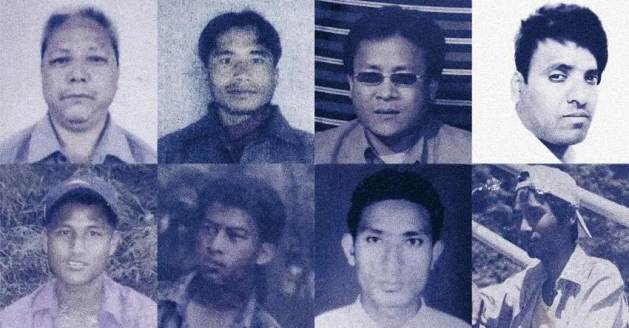[ad_1]

SYDNEY, Mar 23 (IPS) – Elaine Pearson is Asia director at Human Rights Watch“The bodily torture was cruel,” stated one man, “so we had no possibility however to current ourselves to the court docket primarily based on calls for and their statements.”
“They might beat me up, so I confessed, though it wasn’t true,” stated one other.
Such allegations have appeared time and again once more within the work of Human Rights Watch all over the world. However most individuals don’t anticipate to listen to them from the Himalayan kingdom of Bhutan, whose rulers famously declare to maximise “gross nationwide happiness” as an alternative of mere GDP. This concept, enshrined within the kingdom’s 2008 structure, has been taken up by economists and the United Nations, and impressed an annual World Happiness Report.
However Human Rights Watch has documented the presence of at the very least 37 inmates in the country’s prisons who’re described beneath Bhutanese legislation as “political prisoners” due to alleged political crimes in opposition to the state.
The origin of most of those instances goes again to the period around 1990, when the Bhutanese state drove round 90,000 Bhutanese who communicate Nepali as a primary language into exile. In a rustic that had around 550,000 individuals, that was a big share of the inhabitants.
The ruling elite, from the Ngalop neighborhood, had come to see the Nepali-speaking neighborhood as a menace to Bhutan’s cultural id and their very own dominant place. New, discriminatory citizenship legal guidelines stripped a lot of their citizenship, whereas “Bhutanization” legal guidelines aimed toward implementing a model of nationwide id primarily based on Ngalop tradition and language.
Amid widespread safety pressure abuses, many Nepali-speakers have been compelled to flee and have become refugees in close by Nepal, though a large Nepali-speaking neighborhood remained in Bhutan.
1000’s have been arrested for peacefully protesting these insurance policies. Many have been launched on the situation that they go away the nation, or after serving their phrases. Bur the longest serving political prisoners have been in jail, serving sentences of life with out the potential of parole, since 1990.
They embody eight former Nepali-speaking troopers of the Royal Bhutan Military who allegedly attended protest at a secretive and distant jail used to imprison former officers accused of treachery.
One other 15 Nepali-speaking Bhutanese have been imprisoned since 2008 – 12 of them serving sentences of life with out parole. These have been younger males who had fled Bhutan as youngsters with their households, and got here again to Bhutan as a part of a marketing campaign for the suitable to return by a banned group known as the Bhutan Communist Occasion.
Most were captured shortly after their arrival, some with small arms and others with political pamphlets. At their trials for treason, the prosecution contended that as a result of their households fled after they have been infants, these younger males had “deserted the nation and determined to be enem of Bhutan.”
5 of the political prisoners belong to a special neighborhood often known as Sharchops (“Easterners”). 4 males and a lady are imprisoned for alleged connections to a different banned political celebration, the Druk Nationwide Congress, which campaigned for parliamentary democracy and human rights within the Nineties – earlier than Bhutan adopted a democratic structure.
In each case for which Human Rights Watch obtained testimony, it was alleged that the prisoners have been severely tortured on the time of their arrest and trial. “He was tortured by the military,” stated the sister of a prisoner who was arrested in 2008 and sentenced to life. “They have been crushed and burned. After I met him, he was very unhappy, his eyes have been filled with tears.”
Beneath the Bhutanese authorized system on the time, not one of the accused had protection attorneys at their trials. In 2019 the United Nations Working Group on Arbitrary Detention interviewed a few of these prisoners, famous that beneath Bhutanese legislation they’ve “no prospect” of being launched alive until they’re granted an amnesty, and recommended that their convictions be reviewed.
A prisoner who met the Working Group informed Human Rights Watch that guards had warned inmates to not inform the UN specialists the reality about their therapy: “You need to stay with us. They’ll go away tomorrow, so suppose correctly earlier than talking.”
The prisoners are prevented from making or receiving phone calls to their households in Nepal, or different international locations — comparable to the US, Canada, or Australia — the place refugees have resettled. They’re additionally prevented from sending letters, and their households have no idea whether or not the letters they ship are delivered. This causes nice misery to the prisoners themselves, and their family members, who don’t know what situation they’re in.
Bhutan’s authorized philosophy is guided by Buddhist principles emphasizing ideas comparable to “compassion.” The nation is now a parliamentary democracy, however King Jigme Khesar Namgyel Wangchuck continues to be uniquely empowered to launch these prisoners. It may be carried out. In 1999, his father King Jigme Singye Wangchuck granted amnesty to 40 political prisoners. Solely final yr, the king granted amnesty to a political prisoner serving a life time period.
These instances belong to a special time, earlier than Bhutan’s 2008 democratic reforms. Bhutan ought to let all of the political prisoners return to their households.
© Inter Press Service (2023) — All Rights ReservedOriginal source: Inter Press Service
[ad_2]

